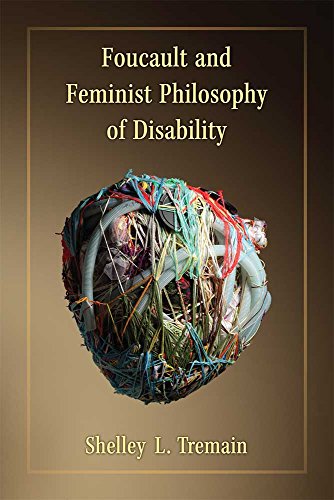Foucault and Feminist Philosophy of Disability (Corporealities
Discourses Of Disability)
Shelley Lynn Tremain
BOOK REVIEW

In the intricate tapestry of contemporary philosophy, Foucault and Feminist Philosophy of Disability emerges as a daring exploration that challenges the normative constructs of disability through a feminist lens. This groundbreaking work by Shelley Lynn Tremain navigates the intersections of Foucault's thoughts and feminist theory, unraveling layers of meaning that provoke deep reflection and conversation. It is not just a book; it is a manifesto, a clarion call for rethinking how we perceive disability within a society that often marginalizes differences.
At the heart of Tremain's discourse lies the provocative idea that disability is not merely a physical or mental condition, but a construct shaped and defined by societal norms and power dynamics-echoing Foucault's theories on the relationship between knowledge and power. Tremain deftly intertwines Foucault's critiques of institutions and norms with feminist philosophy, urging readers to confront the often-overlooked narratives that shape our understanding of what it means to be 'abled' or 'disabled.'
This work challenges the complacency that often comes with understanding disability as a static, social identity. Tremain strips away the comforting veneers of traditional perspectives, revealing the harsh truths embedded in the very language we use. The implications are staggering, forcing you to reconsider your own beliefs and biases. You are thrust directly into the conversation, compelled to question-how do societal structures define ability? Who benefits from these categorizations?
Readers from various backgrounds have responded with a mixture of appreciation and controversy. Some laud Tremain's incisive prose and her ability to weave complex theories into an accessible narrative that speaks to both scholars and laypersons alike. Others, however, have expressed discomfort, claiming that her reliance on Foucault dismisses other important discourses in the field of disability studies. This push and pull between acceptance and resistance amplifies the book's core message: the discourse surrounding disability is inherently fraught with tension, and it demands continuous engagement.
The historical context in which Tremain writes cannot be ignored. Published in 2017, amidst a global push for inclusivity and diversity, the book resonates with the broader movements advocating for marginalized voices. It arrives at a time when feminist thought and disability studies are increasingly intersecting, challenging long-held beliefs about both gender and ability. Tremain's work acts as a bridge, linking these spheres to foster a more holistic understanding of identity.
Tremain's personal background also enriches her analysis. As a philosopher and advocate for disability rights, she embodies the struggle she articulates, bringing authenticity and urgency to her critique. Her exploration is not just intellectual; it is deeply personal, and this fusion invites readers to reflect on their own experiences and understandings without the veil of detachment.
While some detractors criticize the book for leaning heavily on Foucault, supporters argue that such a foundation is necessary for dismantling the heavily institutionalized notions of disability. Many readers report that the book has reshaped their thinking-turning passive spectators into active participants in the ongoing dialogue around disability rights. The ripples of Tremain's insights extend beyond academics, inspiring advocates and allies alike to take a stand and challenge prevailing norms.
You may find yourself grappling with the book's density, but this struggle is precisely what makes it impactful. The emotional and intellectual turbulence it invokes is a testament to its importance in today's discourse-not only in philosophy but in how we navigate and shape our society.
Ultimately, Foucault and Feminist Philosophy of Disability is an unapologetic challenge to confront your own biases and understandings. Tremain doesn't simply offer answers; she ignites a fire within. Her work compels you to engage, to reflect, and perhaps most importantly, to act. The conversations stemming from this book resonate deeply, urging us to reconsider the very foundations of how we frame disability in our world. It is a call to arms for anyone looking to break free from conventional thinking and venture into a more inclusive, compassionate future.
Read it to feel, to transform, and to participate in a vital conversation that is far from over. 🌟
📖 Foucault and Feminist Philosophy of Disability (Corporealities: Discourses Of Disability)
✍ by Shelley Lynn Tremain
🧾 258 pages
2017
#foucault #feminist #philosophy #disability #corporealities #discourses #disability #shelley #lynn #tremain #ShelleyLynnTremain